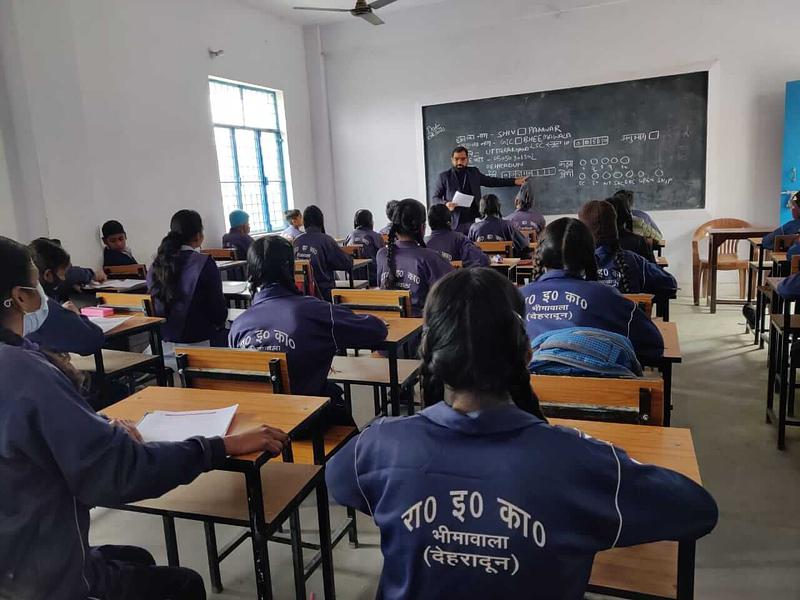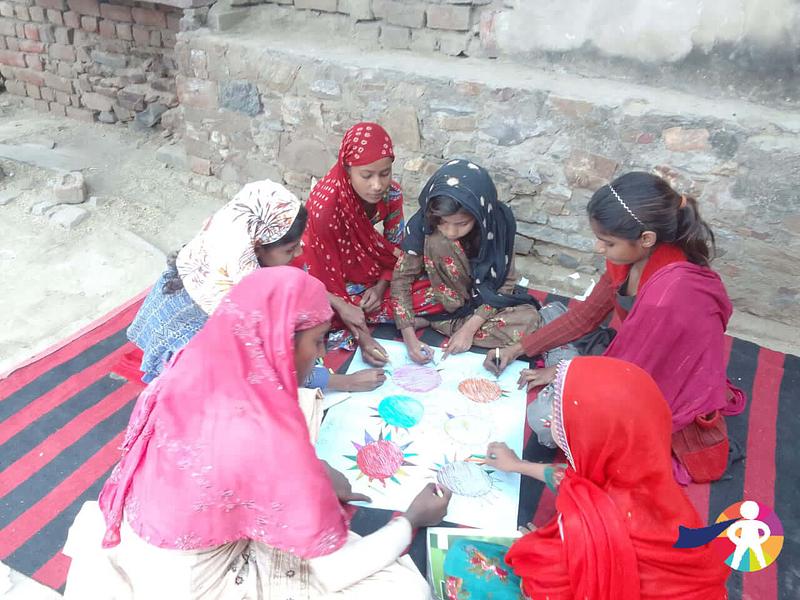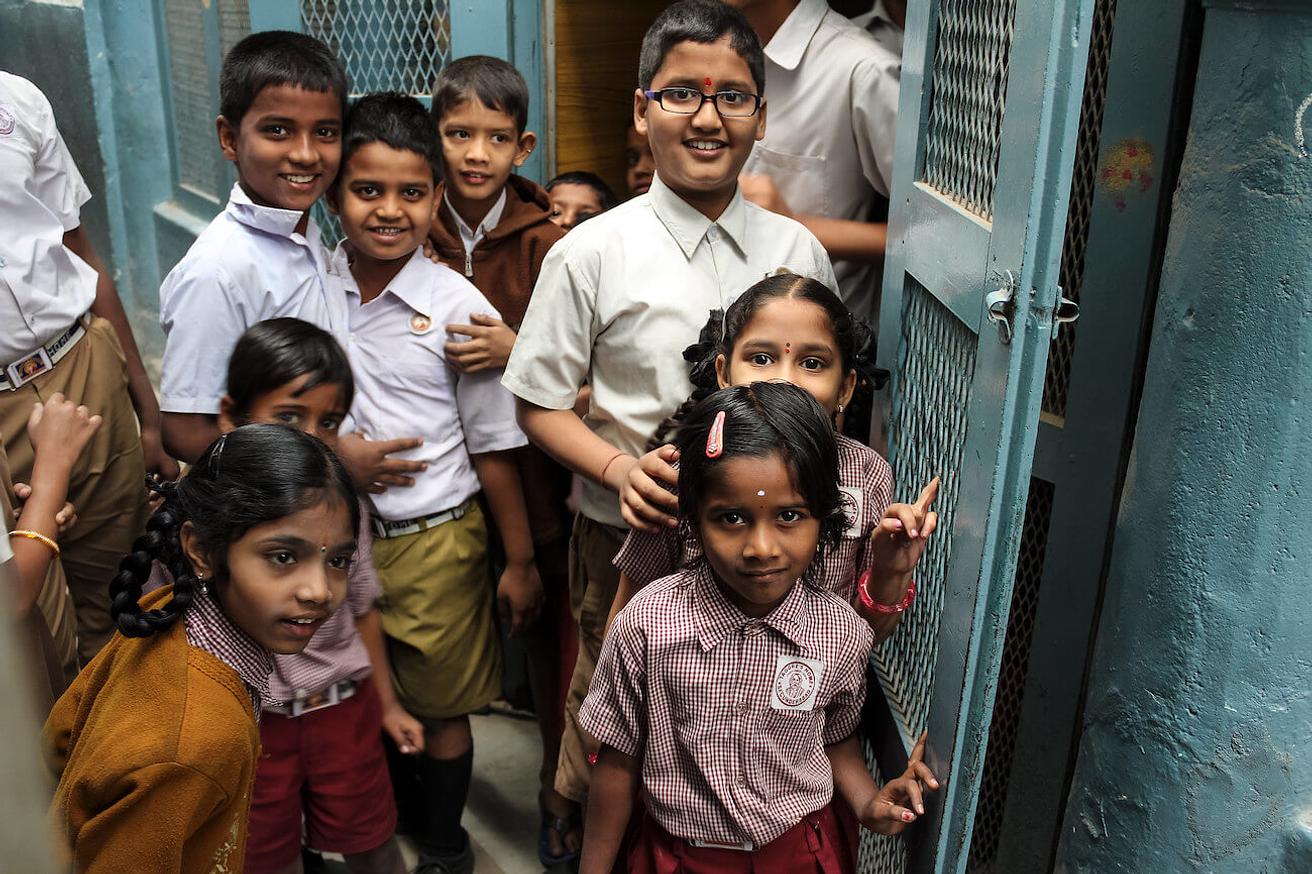The Rising Importance of Well-Being in Education
Wellbeing in education transcends academic learning, encompassing emotional, social, and environmental awareness. In India, the National Education Policy (NEP) also mandates a broad skill set for students, including health, nutrition, physical education, wellness, fitness, and sports. It emphasizes the inclusion of mental health, preventive healthcare, substance abuse consequences, personal and public hygiene, disaster management, and first aid in the curriculum. Unlike previous versions, the current NEP focuses on holistic student development, integrating teachings on healthy lifestyle practices, nutrition, relaxation techniques, moral values, yoga, pranayama, and meditation.
This holistic approach is essential in today’s world, where students must be equipped not only with knowledge but also with the resilience and adaptability to thrive in a rapidly changing environment. The Indian government's initiative to embed these elements into the curriculum is a commendable move towards fostering more rounded individuals. In this evolving educational scenario, innovations that focus on well-being play a very important role.
"One in three children in India live in extreme poverty and have stunted and/or wasted growth. Children from vulnerable backgrounds are exposed to a combination of adverse experiences causing an irrefutable impact on their physical and mental health. Empathy-based transformative pedagogy, experiential learning, and mentoring can help young people immensely," says Vishal Talreja, Co-founder of Dream A Dream.
Talreja is a collaborator in Life Skills Collaborative (LSC) which is a collaborative action, bringing together funders, NGOs and the government to mainstream life skills in India. LSC aims to establish a standardized vocabulary, effective assessment tools, and the inclusion of young people's voices in the field of life skills in India. With the participation of 18 organizations and 4 state governments, LSC is dedicated to addressing life skills in India through three primary strategies: establishing a standardized glossary for life skills terminology, creating scientific assessment tools to measure wellbeing, ability to teach life skills, and assess the education system's readiness for life skills programs, and promoting collaboration via LSNet, a forum involving over 60 organizations and 500 individuals.
The initiative has gathered data from 60,000+ individuals in 14 states to improve the understanding of life skills. Ultimately, LSC aims to build a thriving life skills-focused learning ecosystem in India with support from funders, NGOs, and the government. LSC was selected to HundrED Global Collection 2024 and Talreja’s Dream a Dream in 2021.

Photo: One of the sessions where LSC's partner organizations shared technical inputs in the implementation plan & process in the state of Uttarakhand that initiated the Large Scale Assessment (LSA) of Life Skills Collaborative's Wellbeing tool in 2023. Photo credit: Life Skills Collaborative.
Supporting Teachers and Educators in the Transition
Anoushka Jolly, sees the importance of seeking for solutions by bridging the gap between perceptions of wellbeing between students and teachers. Jolly is a student from Gurgaon, India who decided to tackle one part of student well-being challenges in the country by creating a mental health app for adolescents called ‘Kavach’. The app is also a solution for teachers and parents wherein they can gain insight into and understand the perspectives of adolescents to be better equipped to help them navigate through issues.
Jolly was awarded the Pradhan Mantri Rashtriya Bal Puraskar by President Droupadi Murmu in Delhi in 2023 and now the 15-year-old Jolly takes part in various global panels about student wellbeing and juniors, seniors and peers alike turn to her for advice.
"It's been very long since teachers themselves were children and their childhood was very different than ours because we have technology, social media, and so much going on in our learning spaces which wasn't the case when they were students. So I think there is a gap of understanding there to bring students and teachers closer in solving this issue," she ponders.
Having a shared language about all the dimensions of wellbeing nowadays is crucial. Furthermore, teachers and educators need resources for the novel factors challenging student wellbeing today.
One of the innovations supporting teacher development is Rangeet. Rangeet’s platform and resources align with India’s new educational priorities, offering tools and content that aid in the effective implementation of curricular changes. Rangeet’s emphasis on minimising screen time and focusing on teacher-led instruction resonates with the need for a balanced approach to technology in education.
Rangeet’s technological solutions, while innovative, serve primarily as facilitators for teachers. Their mobile app and digital tools are designed to enhance traditional teaching methods and not to replace them. An approach that is particularly relevant in the Indian context, where a blend of technology and traditional pedagogy is essential for widespread educational access and effectiveness.
A significant contribution that Rangeet has made is in empowering teachers to adapt to the new curriculum. By providing resources that are easily accessible and adaptable, Rangeet enables educators to seamlessly integrate well-being and life skills into their teaching methodologies. The company’s learning resources have not only been implemented in India but have scaled to Oman and Bangladesh. They were recently even added to the resources of the Swiss Museum of Digital Learning (Digital Learning Resources Collection), an initiative of the Jacobs Foundation.
As a fruit of collaboration with Oxford University Press India’s (OUPI) publications “My Happiness and Me”, a Grade 1-8 series of 8 activity books for students and digital teaching tools, OUPI and Rangeet organised a “Wellness Week” event in December 2023, a series of webinars targeted at parents and educators.
“One big takeaway from the Wellness Week webinars was that the focus on wellbeing is crucial - but teachers are being ignored. If you follow the maxim of “Happy teacher, joyful classroom” you realise its importance,” states Simran Mulchandani, Founder & CEO of Rangeet.
The webinar recordings are available here: @rangeet.wellnessweek

Photo: Rangeet promotes group work that builds 6Cs skills (Communication, Collaboration, Content, Critical thinking, Creative innovation and Confidence). Photo credit: Rangeet.
Strategies for Holistic Wellbeing and Inclusive Learning
Vineeta Garg, HundrED Community Lead in India and Head of IT Department in SRDAV Public School, points out that the profound wisdom found in ancient Indian texts teaches that health is deemed as one of life's primary objectives, alongside righteousness, wealth, desire/pleasure, and liberation. The essence of health involves the conscious effort to evade physical and mental suffering, as eloquently expressed in the Sanskrit aphorism, "Dharm artha Kama moksha naam Arogyam, deh sukh dukh parivarjanam."
“Despite the enduring relevance of these principles, both within India and globally, there appears to be a notable oversight in acknowledging and incorporating them into contemporary practices,” she expresses.
Garg has worked to improve student wellbeing throughout her career in several ways and employs a variety of different strategies to cater to varying learning styles and abilities. Recognized by both the President and Prime Minister of India, Garg is acclaimed for her innovative practices and commitment to student and educator wellbeing. She advocates for the integration of emerging technologies like Artificial Intelligence, virtual reality, and augmented reality in education.
“Providing learning materials in formats such as text, videos, audiovisual books, mind maps, and cheat sheets through mobile apps ensures accessibility for students anytime, anywhere. I enhance enthusiasm by creating educational games aligned with the curriculum and composing jingles and raps. Additionally, I encourage students to express their understanding creatively, allowing freedom in the choice of expression, from comic strips to art forms like Worli and Mandala.”
Together with her colleague, Garg has developed the Pedagogy of Learning website that aims to support educators with social-emotional learning (SEL) resources, fostering inclusive education and holistic wellbeing. Through extensive content, including life skills videos, lesson plans, research papers, and articles, Team Wellbeing Mantra endeavours to bridge the edtech gap and reduce educational inequality, equipping educators with SEL skills for shaping the future generation.
The Future of Well-being in Indian Schools
The transformation of India’s national curriculum to include a focus on wellbeing is a monumental step forward. In this journey, innovative education plays a vital role in enabling educators and students to embrace these changes effectively. HundrED’s community Lead in India, Vineeta Garg firmly believes that the situation regarding student wellbeing has the potential to change significantly for the better within the next ten years.
“Mental health and wellbeing are finally receiving the crucial attention they deserve in India, leading to a gradual destigmatization of these issues. This growing awareness is empowering students and educators to seek help without fear of judgment, creating a more supportive environment overall. It is also crucial to prioritize teacher wellbeing because only happy teachers can cultivate joyful learning environments, ultimately fostering happy classrooms.”
The shift in the education policy away from exam-centric approaches towards a holistic, student-centered model contributes to increased motivation and autonomy. This positive change, driven by collective efforts from the government, schools, educators, parents, and communities, marks significant progress. While acknowledging these achievements, Garg emphasizes the ongoing work required.
“The integration of technology tailored to individual student needs has proven valuable by enhancing interactive and enjoyable learning experiences, reducing stress, and fostering overall wellbeing. While significant progress has been made, there is still much work to be done. The next decade holds tremendous potential for a brighter future, where students are empowered to thrive both within the classroom and beyond,” Garg concludes.
Header photo: School Children in India. © Priya Morjaria
